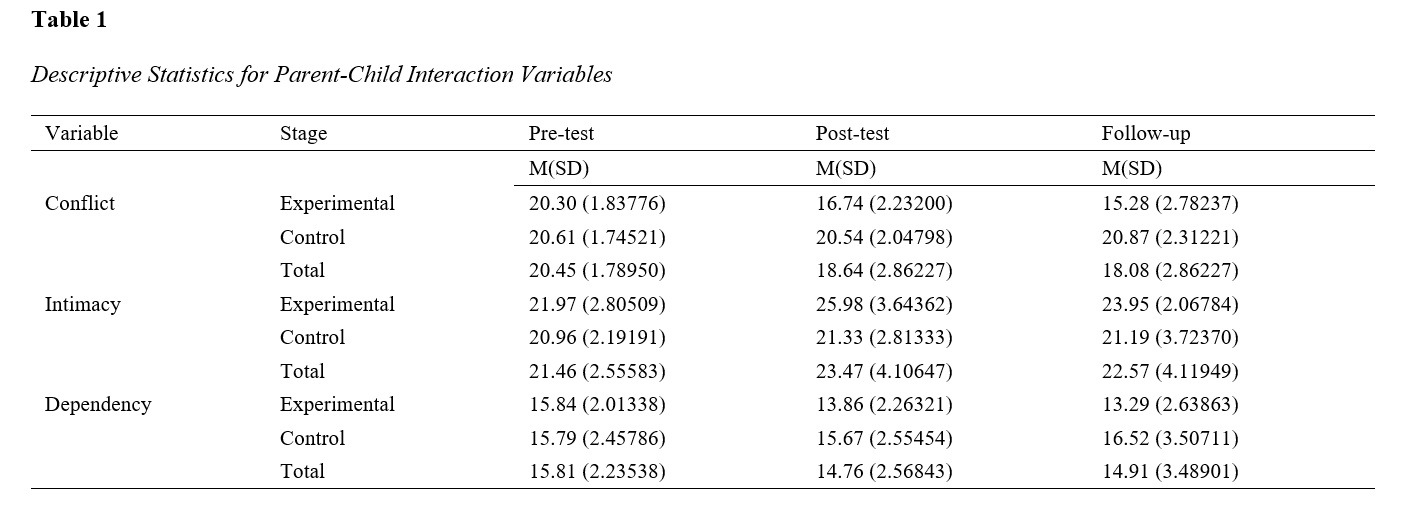The Effectiveness of a Family-Centered Problem-Solving Program on Parent-Child Interaction During the Coronavirus Period
Keywords:
family-oriented problem solving, child-parent relationship, social problem solving , Covid-19Abstract
Objective: The aim of this study is to investigate problem-solving skills as a comprehensive program that plays a significant role in communication and guiding individuals' lives towards achieving specific goals. The program is designed to modify behavior, select, and replace appropriate behaviors in challenging conditions faced by individuals.
Methods and Materials: The research design is quasi-experimental, utilizing a pre-test, post-test, and follow-up method with a control group. A total of 100 students were selected through random sampling and were randomly assigned to two groups: an experimental group (50 participants) and a control group (50 participants). Parents and students then participated in 10 two-hour sessions of the family-centered problem-solving program over three months. Data were collected based on parents' reports using the short form of the Social Problem-Solving Inventory (D'Zurilla et al., 2004) and the Pianta Parent-Child Interaction Questionnaire (1994).
Findings: The findings, according to the participating mothers' reports, indicated a significant difference in the experimental group between pre-test and post-test scores (three-month interval) and follow-up (one-month interval) in the subscales of the Pianta Parent-Child Interaction, including conflict resolution (P < 0.04) and intimacy (P < 0.03). However, no significant difference was found in the dependency subscale.
Conclusion: The practical application of the family-centered problem-solving training resulted in changes in mothers' parenting styles, improving interactive communication between mother and child, increasing emotional connection and intimacy with the child, and reducing emotional conflicts among children, thereby playing an important role in family communication patterns.
Downloads

Downloads
Additional Files
Published
Submitted
Revised
Accepted
Issue
Section
License
Copyright (c) 2024 Samira Ganjipour (Author); Keivan Kakabraee (Corresponding Author); Seyeda Al-Sadat Hosseini, Mokhtar Arefi (Author)

This work is licensed under a Creative Commons Attribution-NonCommercial 4.0 International License.














